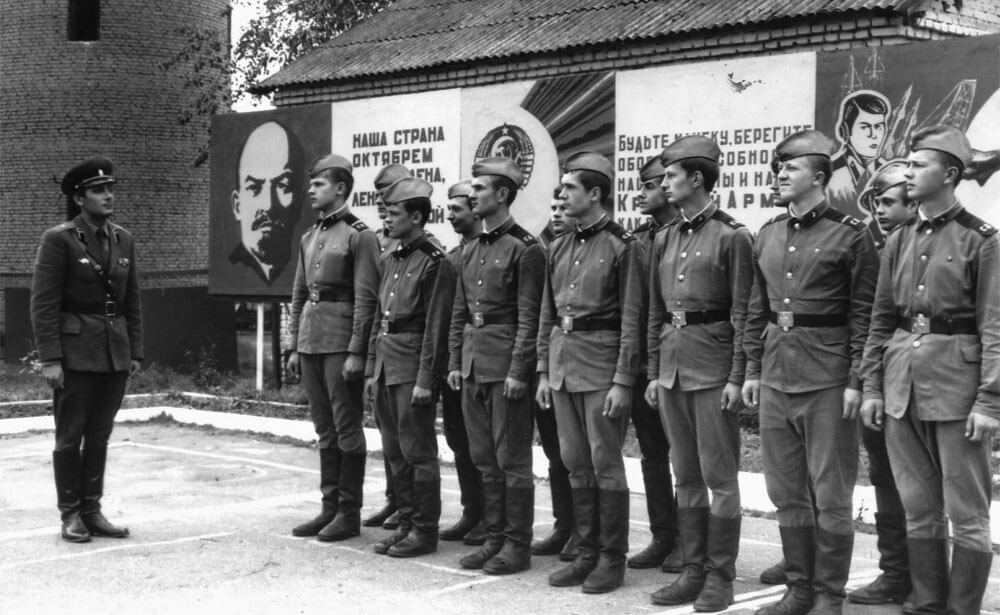Lithuanian Men in the Forced Soviet Army
An Alien World – Under the Influence of Propaganda
It is an old truth that an enemy, with the goal of subjugating another nation, does not stop at occupying its territory. The struggle continues in order to break the spirit of the occupied. Before the invasion of Soviet Union, communist ideology was alien to many Lithuanians. The fashion of socialist ideas, spreading among the left-wing intelligentsia, did not become universal. The captivity, deaths and humiliations, brought about by the occupation and reoccupation of Lithuania, turned the mood against Marxism even more. As the terror intensified, a sense of self-preservation forced people to adapt to the occupier’s system, based on propaganda clichés. It was hammered into people’s heads that only the new system would ensure a full and dignified life for them, and that everything that had existed in Independent Lithuania was doomed to condemnation, destruction and oblivion.
The party considered schools and the army to be particularly important institutions for russification and propaganda.

“Called into Service...”
The Lithuanian men who were forcibly mobilised or later “called into service” were flooded with expansionist propaganda in the occupiers’ barracks. Surrounded by tasteless posters, absurd slogans, crooked diagrams, cement idols of the Communist Party leaders and military commanders, and military equipment turned into monuments, a recruit was rarely left in peace. The military commanders’ political instructors paid special attention to verbal propaganda. In formation of the lines, the soldiers were forced to sing Russian songs, and in the barracks, they were hardened by political “activities”. In the spaces dedicated to the rites of the communist cult – “red corners”, Lenin rooms and auditoriums – communist policy, especially “peaceful in the midst of the aggression of the Western powers”, was explained to the soldiers by the political instructors themselves or junior officers and non-commissioned officers, authorised by them. For some lecturers, these activities became a serious test of manipulative abilities.
“Zombification Boxes”
A contemporary told the story of how in a unit, stationed in Lithuania during Brezhnev’s time, one preacher was having a hard time explaining to the soldiers why civilians called them occupants, and why Lithuanian women did not want to befriend them and demonstrated an open hostility. The work of the lecturers was facilitated by television. The sergeants religiously drove the soldiers to these “zombification boxes” every night to watch “Vremya” (“Time”), the nightly news programme broadcast from Moscow. Sometimes junior commanders would decide to make a certain soldier give a political lecture. There are known cases when Lithuanians used these lectures to “enlighten” foreign soldiers on Lithuanian history, telling them about the “Forest Brothers” and the self-immolation of Romas Kalanta. Dissident soldiers were “educated” by the Special Department of the KGB (the NKVD (MVD) until 1954).
Propaganda Works
Even though Bolshevik propaganda was foreign, antagonising and perceived as primitive demagoguery, it still had an impact on young people. Without being forced by anyone, the soldiers not only took pictures next to the visual propaganda – they also repeated the clichés, used by the occupants, in the inscriptions they wrote on them.
Over time, young people increasingly came back from the Soviet Army with abusive behaviour patterns and a wealth of Russian phrases that they constantly used in their speech, as well as the inability to resist Soviet propaganda.